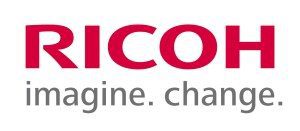Andrew Grant, Account Director, Enterprise Services, Ricoh UK offers advice on how the legal sector can safely and securely store information during the move to a paper-light society :
In recent months, we have seen various business sectors adapt to the developments in new technology and the ‘digital era’ that we now find ourselves firmly living in. The banking sector, for example has recognised customer demand for secure and seamless access to online banking, with the introduction of fingerprint authentication to allow access from certain devices such as iPhones. Furthermore, the healthcare sector has acknowledged that our society is shifting away from paper and towards digital with the NHS having set itself the ambitious target of going paperless by 2018. For these examples, it is clear that most sectors are revaluating the ways in which customer data is stored and secured.
But what of the legal sector, an industry renowned for excessive numbers of files, documents and innumerable amounts of paperwork? The amount of sensitive data a law firm stores could not be downplayed and the shift to a ‘paper-light’ environment will be no ‘quick fix’ task. There are numerous factors at play here when considering the move to a truly modern, digitally secure legal sector.
The time for change: barriers and incentives
Many large UK law firms have a history of being risk-averse, which does not go hand in hand with the innovative thinking required for embracing technology. This is because most law firms are owned by partners who are lawyers, and not necessarily business people who have a more regular experience of managing large-scale finances and reducing bottom line costs.
However, shifts in regulation which came into effect in 2012 allowed law firms to be part of, or wholly-owned by non-lawyers under alternative business structures. Slater & Gordon has, for example bought small law firms in the UK, and many other firms are since merging with or being acquired by others. The marketplace is now faster and more dynamic with a greater appetite for innovative approaches to doing business, not to mention leveraging the latest technologies on the market. The smaller law firms are typically more agile in their approach and there are now many internet-only law firms entering the market. The bigger firms can and should look to take a leaf from this innovative approach.
One of the greatest advantages of moving to a paper-light system is reduced costs. A more tech-savvy approach can help automate many processes and drive efficiency across the board. Automation software is especially important to remove the risk of human error in the documentation process – a potential benefit to us all.
Security in the age of ‘digital by default’
With the rising influence of technology, security is understandably a significant concern. This concern is not misplaced in the legal industry, a sector which prides itself on safeguarding personal information and sensitive data both digitally and physically.
However, what is not considered is that the security of physical documents is just as much of a concern as the security of digital documents. Think about how easy it is to accidentally leave a confidential file lying around on the train, or the possibility of someone reading details over your shoulder in public. Furthermore, the outsourcing of documents is a significant problem in the legal profession. Many law firms typically send vast amounts of documents to be printed, scanned and bound without often checking if the courier or printer has the necessary security accreditation such as ISO standards. Whilst paper will never completely disappear, we do need to debunk the myth that digital is less secure if we are to innovate as an industry.
The rise of cloud services and virtual data rooms have made the sharing and access of documents amongst authorised people as seamless as possible. Tablet devices, for example, can securely display a range of documents, without the risk of each individual document getting lost or read by the wrong person. This kind of technology is at our fingertips and can streamline the very fabric of how a law firm is run.
The opportunities in going paperless are numerous – from increased efficiencies, safer and more secure storage of files to even the space-saving benefits from cutting down on the filing cabinets and shelving space. With increasing competition and an ever-changing legislative landscape, now is the time for the legal sector to well and truly adapt to today’s developments in technology and smart data storage. This will boost agility, competitiveness and reduce costs in the long-run, also reducing carbon footprints and equipping lawyers to access vital information securely and using the device of their choice. The security concerns of yesterday should no longer restrict law firms from the potential of a digital tomorrow.[su_box title=”Andrew Grant, Account Director, Enterprise Services, Ricoh UK” style=”noise” box_color=”#336588″] Ricoh is a trusted technology leader, with an impressive track record for innovative and sustainable business solutions. Our innovation is inspired by the individual needs of our customers, from small start-ups to major organisations.At Ricoh, we understand that your business can only thrive with systems that help your staff communicate more effectively – and solutions that works as hard as you do. We provide document services, consulting, software and hardware to organisations nationwide. By modernising the workplace, improving document processes and increasing performance, we help fuel your profitability and grow your business.[/su_box]
Ricoh is a trusted technology leader, with an impressive track record for innovative and sustainable business solutions. Our innovation is inspired by the individual needs of our customers, from small start-ups to major organisations.At Ricoh, we understand that your business can only thrive with systems that help your staff communicate more effectively – and solutions that works as hard as you do. We provide document services, consulting, software and hardware to organisations nationwide. By modernising the workplace, improving document processes and increasing performance, we help fuel your profitability and grow your business.[/su_box]
The opinions expressed in this post belongs to the individual contributors and do not necessarily reflect the views of Information Security Buzz.



